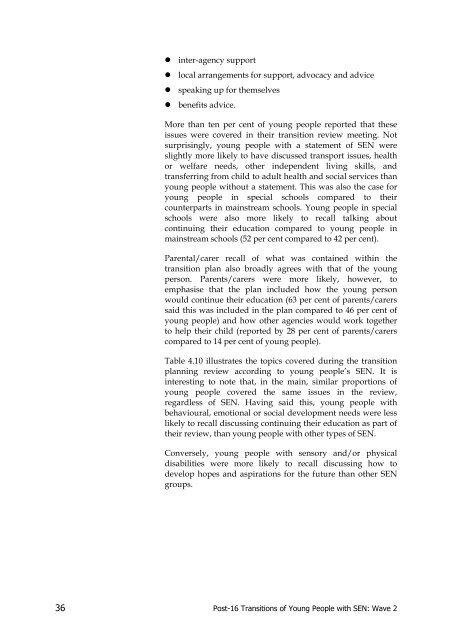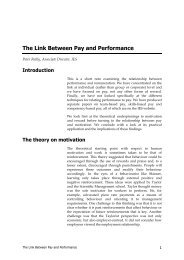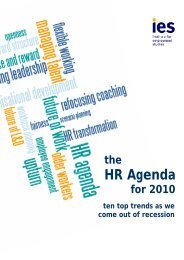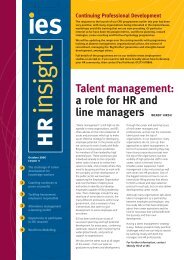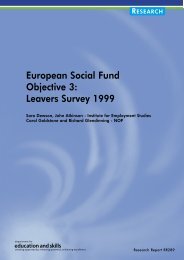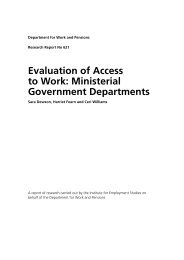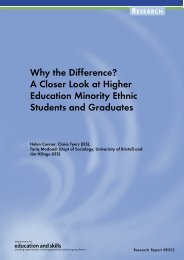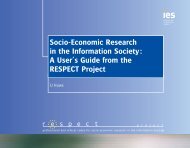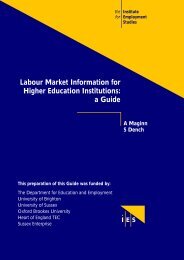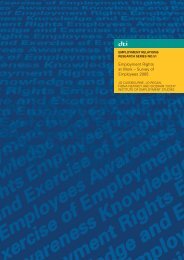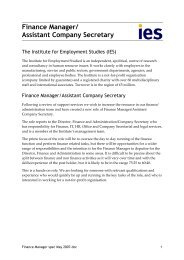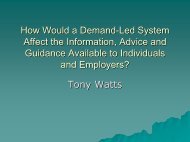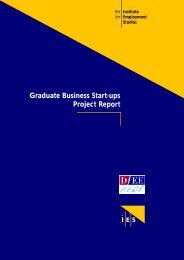Post-16 Transitions: a Longitudinal Study of Young People with ...
Post-16 Transitions: a Longitudinal Study of Young People with ...
Post-16 Transitions: a Longitudinal Study of Young People with ...
Create successful ePaper yourself
Turn your PDF publications into a flip-book with our unique Google optimized e-Paper software.
• inter-agency support<br />
• local arrangements for support, advocacy and advice<br />
• speaking up for themselves<br />
• benefits advice.<br />
More than ten per cent <strong>of</strong> young people reported that these<br />
issues were covered in their transition review meeting. Not<br />
surprisingly, young people <strong>with</strong> a statement <strong>of</strong> SEN were<br />
slightly more likely to have discussed transport issues, health<br />
or welfare needs, other independent living skills, and<br />
transferring from child to adult health and social services than<br />
young people <strong>with</strong>out a statement. This was also the case for<br />
young people in special schools compared to their<br />
counterparts in mainstream schools. <strong>Young</strong> people in special<br />
schools were also more likely to recall talking about<br />
continuing their education compared to young people in<br />
mainstream schools (52 per cent compared to 42 per cent).<br />
Parental/carer recall <strong>of</strong> what was contained <strong>with</strong>in the<br />
transition plan also broadly agrees <strong>with</strong> that <strong>of</strong> the young<br />
person. Parents/carers were more likely, however, to<br />
emphasise that the plan included how the young person<br />
would continue their education (63 per cent <strong>of</strong> parents/carers<br />
said this was included in the plan compared to 46 per cent <strong>of</strong><br />
young people) and how other agencies would work together<br />
to help their child (reported by 28 per cent <strong>of</strong> parents/carers<br />
compared to 14 per cent <strong>of</strong> young people).<br />
Table 4.10 illustrates the topics covered during the transition<br />
planning review according to young people’s SEN. It is<br />
interesting to note that, in the main, similar proportions <strong>of</strong><br />
young people covered the same issues in the review,<br />
regardless <strong>of</strong> SEN. Having said this, young people <strong>with</strong><br />
behavioural, emotional or social development needs were less<br />
likely to recall discussing continuing their education as part <strong>of</strong><br />
their review, than young people <strong>with</strong> other types <strong>of</strong> SEN.<br />
Conversely, young people <strong>with</strong> sensory and/or physical<br />
disabilities were more likely to recall discussing how to<br />
develop hopes and aspirations for the future than other SEN<br />
groups.<br />
36 <strong>Post</strong>-<strong>16</strong> <strong>Transitions</strong> <strong>of</strong> <strong>Young</strong> <strong>People</strong> <strong>with</strong> SEN: Wave 2


